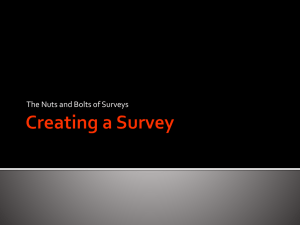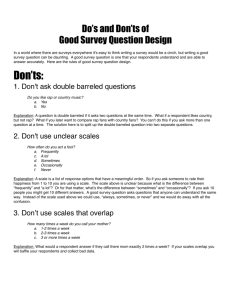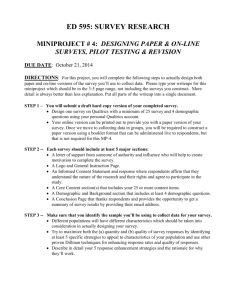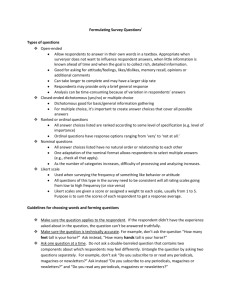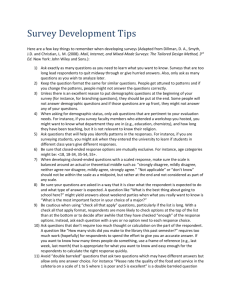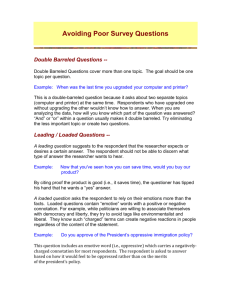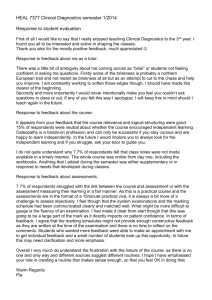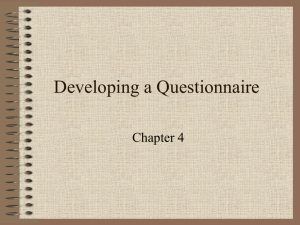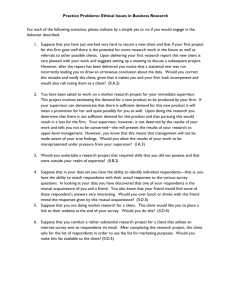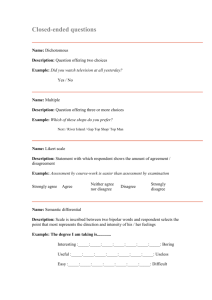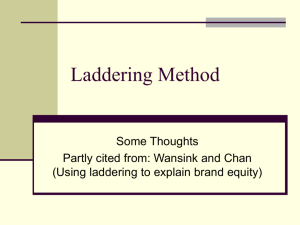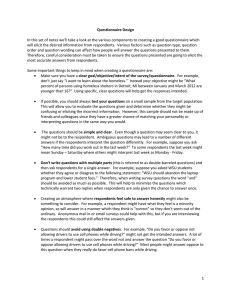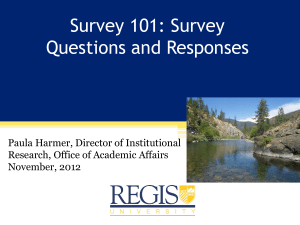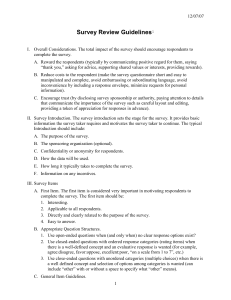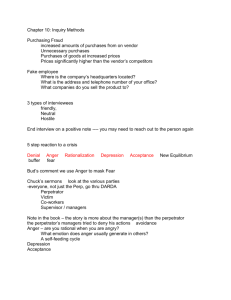Writing survey questions
advertisement
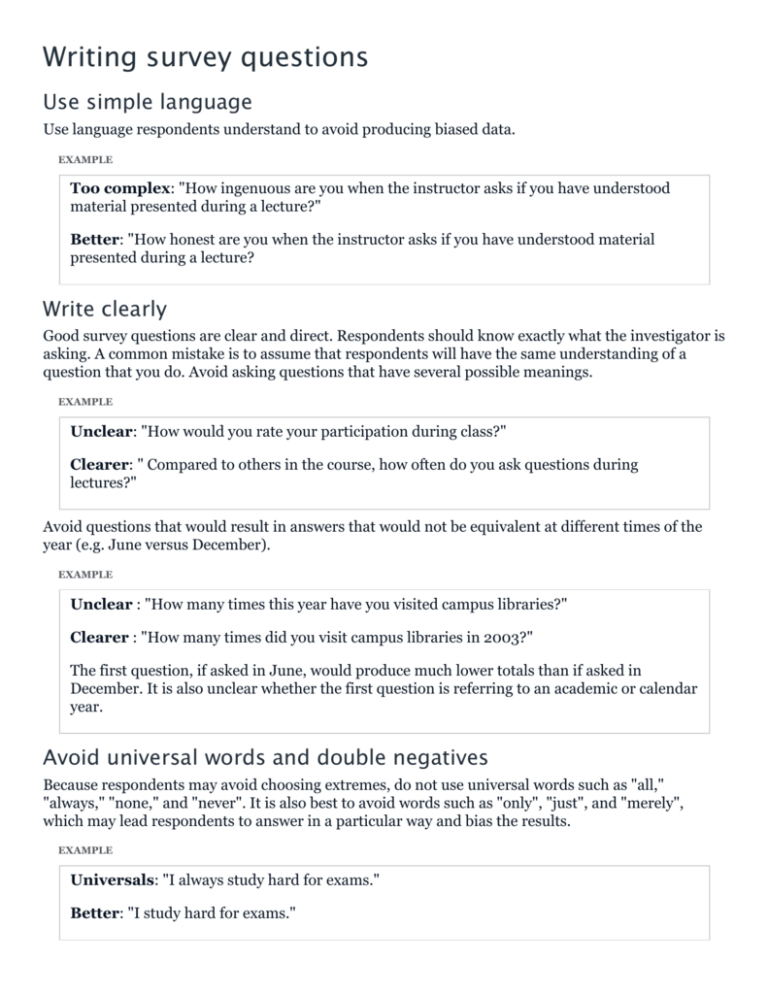
Writing survey questions Use simple language Use language respondents understand to avoid producing biased data. EXAMPLE Too complex: "How ingenuous are you when the instructor asks if you have understood material presented during a lecture?" Better: "How honest are you when the instructor asks if you have understood material presented during a lecture? Write clearly Good survey questions are clear and direct. Respondents should know exactly what the investigator is asking. A common mistake is to assume that respondents will have the same understanding of a question that you do. Avoid asking questions that have several possible meanings. EXAMPLE Unclear: "How would you rate your participation during class?" Clearer: " Compared to others in the course, how often do you ask questions during lectures?" Avoid questions that would result in answers that would not be equivalent at different times of the year (e.g. June versus December). EXAMPLE Unclear : "How many times this year have you visited campus libraries?" Clearer : "How many times did you visit campus libraries in 2003?" The first question, if asked in June, would produce much lower totals than if asked in December. It is also unclear whether the first question is referring to an academic or calendar year. Avoid universal words and double negatives Because respondents may avoid choosing extremes, do not use universal words such as "all," "always," "none," and "never". It is also best to avoid words such as "only", "just", and "merely", which may lead respondents to answer in a particular way and bias the results. EXAMPLE Universals: "I always study hard for exams." Better: "I study hard for exams." Negatively worded questions are often confusing because responding "no" creates a double negative. EXAMPLE Negatively worded: "Should the instructor not schedule an exam the same week a paper is due?" Better: "Should the instructor schedule an exam the same week a paper is due?" Write short questions Questions should be short and simple, rarely exceeding 20 words. Survey items are often completed quickly, without much thought. Therefore, compound questions can lead to misinterpretation when the respondent tries to rapidly read, understand, and answer them. One concept per question Each survey questions should contain only one concept. "Double-barreled" questions, addressing more than one concept, may confuse the respondent. The respondent may answer only one part of the question or fail to answer either part. The solution is to separate two ideas into two questions. EXAMPLE Double­barreled: "To what extent did using Blackboard and the Classroom Performance System help you learn the material for this course?" Better: "To what extent did using Blackboard help you learn the material for this course?" "To what extent did using the Classroom Performance System help you learn the material for this course?" Avoid biased questions Write questions that do not lead the respondent to answer a particular way. EXAMPLE Biased: "This semester we used state-of-the-art technology with the Classroom Performance System. What is your opinion of the system?" Better: "What is your opinion of the Classroom Performance System?" Choose relevant subjects If respondents don't have any relation to or knowledge about a subject, they may provide responses that are of little use. For example, if you were to ask students to evaluate government spending in London, they may provide opinions despite having little knowledge about this subject. Consider the capability of respondents Respondents may not be able to accurately answer certain questions. For example, they may not recall details about the format of tests from a class they took two years ago.
